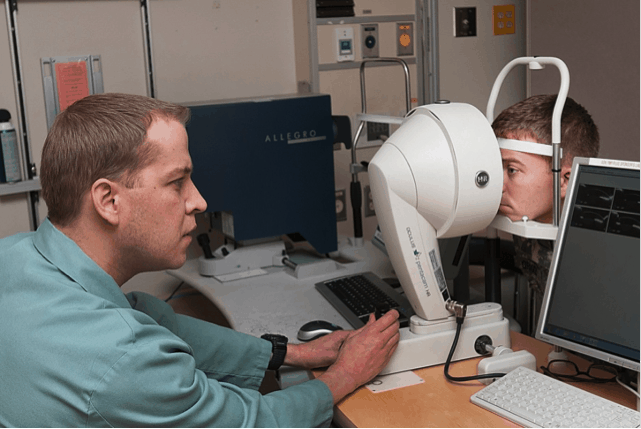LASIK – Success Factors
Patients have to meet certain criteria for the successful outcome of the LASIK procedure. The patients should know the requirements to determine whether the LASIK surgical procedure is suitable for them or not. The end result of PRK and LASIK are suitable for most patients. However, every patient is not a good candidate for this corrective surgery. Certain health problems and conditions in patients disqualify them from performing LASIK eye procedures. The LASIK surgeon will determine whether the person is eligible for the laser procedure by checking various factors.
LASIK Surgery Success Factors

Image courtesy: flickr.com. License: https://creativecommons.org/licenses/by-nc-sa/2.0/
The patients have to meet the requirements such as:
Age – LASIK Surgery Success Factors
The patient should be of 18 years or above with a stable eye prescription for a minimum of one year. Doctors do not allow candidates less than 18 years of age to undergo corrective surgery because their eyes are still developing. Since the eyes are at a developing stage, the eye surgeon will not be able to identify the correct parameters to perform a perfect surgery. Even though there is no upper age limit, older patients are considered as not suitable for the procedure as they have a high probability of developing age related eye conditions such as cataract that may diminish the chances of a successful procedure. After the age of 40, the patients still may require reading glasses to correct the vision due to presbyopia.
Overall Health – LASIK Surgery Success Factors
The candidates should be healthy to become eligible for the LASIK procedure. Patients with degenerative conditions or autoimmune diseases such as rheumatoid arthritis, Sjogren’s syndrome, AIDS, macular degeneration, glaucoma, corneal ulceration, and type-1 diabetes are not eligible for laser eye procedures. HIV infected patients with good amount of immune cell count are eligible for LASIK. If the patient has a problem in healing wounds, then laser surgery is not suitable for such person. If the patient is under certain medications such as Renova, isotretinoin, immunodepressants, and steroids, then they prevent healing of surgical wounds.
Pregnant or Nursing Woman – LASIK Surgery Success Factors
If a woman is pregnant or nursing a child, then the surgeon insists not to undergo surgical correction of the eye. Hormonal changes occur during pregnancy and nursing affect the stability of vision in women. Hence, it is recommended to postpone the laser eye surgical procedure during pregnancy and nursing. Certain medications taken for healing the surgical wounds may affect the unborn as well as breastfeeding baby.
Corneal Thickness – LASIK Surgery Success Factors
Sufficient corneal thickness is required for a good candidate as the surgeon has to create corneal flap during the LASIK procedure. Hence, people with thin cornea are not qualified for the laser eye procedure.
Size of the Pupil – LASIK Surgery Success Factors
The size of the pupil also determines whether the patient is a suitable candidate for the LASIK surgery or not. People with larger pupils are not eligible for laser surgery because after surgery most people are experiencing halos, glare, and starbursts. Patient with larger pupils can opt for Epi-LASIK or LASEK procedure.
Eye Prescription – LASIK Surgery Success Factors
Patients with severe refractive errors are not qualified for laser eye surgery. Such patients should consider lens implantation procedures such as Phakic IOL.